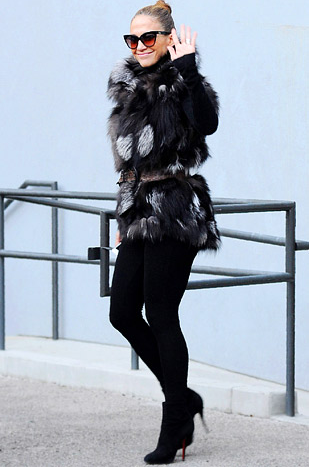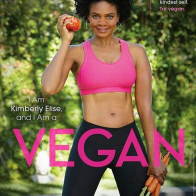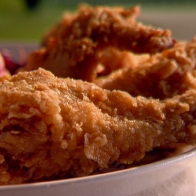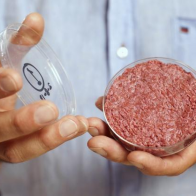 I am the line where being an animal lover and a functional fur-wearer blurs. I know there are staunch supporters and adversaries in the debate over the wearing of fur—but at what point do good intentions rear their heads in daylight only to be revealed as upper-class guilt?
I am the line where being an animal lover and a functional fur-wearer blurs. I know there are staunch supporters and adversaries in the debate over the wearing of fur—but at what point do good intentions rear their heads in daylight only to be revealed as upper-class guilt?
The truth is that this argument can only take place in a very particular environment. An environment where people aren’t concerned with putting food on the table for their kids, or the ways in which they are going to survive if they lose their salary in the most recent round of lay-offs at a job that just barely pays the bills to start with.
This conversation does not take place in a neighborhood where people are concerned for the safety of their loved ones because the streets just outside their homes are riddled with violence that makes them fearful to perform the daily tasks and activities to which many of us don’t give a second thought.
This debate is not even for the person who is trying to figure out how she will afford to attend college in the face of a dramatically climbing tuition rate, considering that her family makes just enough to not qualify for financial assistance, but not enough to handle anymore expenses.
This conversation generally takes place among people who are accustomed to having all that they actually need—along with a good amount of what they want. This discourse is prompted by people who are afforded the luxury of having the time to ponder the ills of society and misfortune in the world because very little misfortune exists within their own microcosmic universes. In turn, they cannot help but notice the consumption and over-consumption of their peers; so they, out of guilt and/or perceived responsibility, make it their platform to protect the animals that can’t protect themselves. Right?
In September 2010, animal rights activists release 5000 minks from a farm in Donegal, in the northwest region of Ireland. Actually, out of the approximately 33,000 minks on Anderson’s Mink Farm, the other 28,000 chose to stay put in their cages. Out of the 5000 that escaped, most of the minks were hit by cars when they wandered into the street looking lost and bewildered (while also causing accidents). The other minks killed one another or starved to death, while about 100 were recaptured by the farm. According to the U.K. newspaper the Guardian, agricultural authorities reported that the surviving minks threatened to destroy nearby fish, fowl and rabbit populations in the area. I would pose this question to the animal activists who did not admit to participating, but praised the people who did: what exactly did this act accomplish for the minks—most of whom died horrible deaths after being released—or for the lives of the other animals and people impacted by this stunt? Or was there no other positive outcome other than the activists involved receiving publicity for “caring”?
According to Lloyd Alter on TreeHugger.com:
“The thing to understand about veganism, as a philosophy, is that it starts with the precept that we, as humans, do not have any right to “use” animals for anything. That our use of animals, who have no choice in the matter, is a form of exploitation. And that we should avoid, to the extent it is possible, all forms of that exploitation.”
This was his response to a person who asked why Alter feels it to be wrong to also wear wool, considering that no harm is done to sheep in the shearing process. To him I ask, what good is any being — person or animal — if it has no use? If you are of use, then you have a purpose in the larger scheme of things. Are animals not to have a purpose? Were they placed here simply to enjoy eating, shitting, fucking and eventually dying?
Here’s an interesting notion to consider: A lion wouldn’t object to another lion killing a gazelle any more than any other member of the food chain would chastise a peer for hunting the prey that is used as a resource of food, warmth or sport; but human beings so often insert moral responsibility into what has always been considered natural selection . . . whatever happened to survival of the fittest? We should not kill minks to stay warm, but they kill each other over territory and are known to be notorious for killing more than they need to eat. So we protect animals that gratuitously kill more than they need, while viciously hunting and verbally attacking other human beings for not holding the same views that we do . . . and that’s okay? Smells like bullshit.







I think this article is very shortsighted and does not show any compassion for the “animal lover” the author proclaims to be. I cannot understand why anyone who claims to love animals can justify the slaughter of animals for fashion.
Let’s keep it all the way real, 99% of fur coats are for fashion purposes, so basically, the author is saying that it’s OK to murder for fashion. Animals have feelings too. They can feel every second of torture that they go through for you to look good.
I almost threw up in my mouth when the author said:
“To him I ask, what good is any being—person or animal—if it has no use? If you are of use, then you have a purpose in the larger scheme of things. Are animals not to have a purpose? Were they placed here simply to enjoy eating, shitting, fucking and eventually dying?”
This shows the arrogance and the most basic of all follies in regards to “civilized” humans relationship to animals and the earth.
First, the fact that we do not have fur or that our hair does not grow in as thick as some mammals somewhat proves that we are tropical animals, not naturally equipped to live in cold weather. Maybe we should think about that…
Secondly, humans are not and never will be in any position to use any animal for anything. We can only partner with willing animals, and those animals should be respected highly. They are only helping, not being used.
Lastly, Indigenous peoples around the globe rarely slaughtered animals for sport and fashion. Yes many tribes are pictured with feathers and animal skins, but, most of the time, those animals were eaten and sacrificed with love because Indigenous people understood the balance of nature.
This article is written in the language of violence and tyranny. I cannot blame the author because she must have been indoctrinated into this very violent (cult)ure at a very young age, like we were, and is unwilling to give up this backward and damaging stance on murder.
@folami Furs aren’t as bad as you are making them out to seem. I mean a lot of people wear furs in cold weather instead of leather jackets or wool coats. You can buy cruelty free animal products which assure the consumer that the item is legit.
I don’t wear furs cuz I think their tacky and in poor taste a lot of the time. But, riddle me this little miss animal rights activist, if you were out in the forest and freezing, would you turn down a fur coat cuz it was murder? doubt it!
@ Folami, I respect ones right not to wear animal products, but I have distain for habit that many animal rights activists have of forcing their views on others. The greatest benefit of fur, wool and even silk is that they are (when made well) long-lasting, quality fabrics that hold in warmth from natural sources. Cotton is breathable so it doesn’t have the ability to compare in the department of warmth. Any time clothes are made using expensive fabrics, it’s logical to make them fashionable, because pretty sells.
Now if you want to get into the discussion of not using any fabrics sourced from animals/insects, then that would require the creation and use of synthetic fabrics. The production of these materials utilize chemicals and beyond requiring excessive energy, have a negative impact on the environment. Rather than protesting fur, it makes more sense to protest the method by which some farms kill the animals used.
Besides, the methods used to kill animals like cows and chicken for consumption is a much larger issue that affects a much higher number of animals…not to mention the use of harmful antibiotics that cause them to grow at abnormally agressive rates, causing crowded and disgusting living conditions… but that’s another story.
As for partnering with animals…that sounds effing ridiculous and makes as much sense as me opening a joint checking account with my dog (he prefers cashmere sweaters as well). For the record, I love my furs and I greatly respect the animals that died so I can stay warm and I respect nature enough to acknowlege that the minks on my back could have died for my warmth or because he pissed off another mink in the woods and lost the fight.
The idea that because humans don’t have thicker hair or fur, that we should only live in tropical climates is way more short sighted than the beautiful furs that I will one day pass along to my daughter. More importantly, it would make L.A. and Miami way to crowded…and that wouldn’t be fun for anyone.
Polyprophene, wicking fabric, and fleece all give lots of warmth and can be made in environmental safe ways. This argument is silly, animals should be killed for trivial reasons like fashion.
The fact that the author felt the need to defend such an absurd topic demonstrates her lack of respect for life. Period. Grow up people
@Folami: I have No guilty feelings about wearing fur and stepping in my gators.. The minks were raised to skin and the gators were caught on land..? Both of which I don’t EAT!
PETA should close Down! I saw news footage on their practices, they had dead animals thrown in the trash bins behind their offices.. And most of the protesters I’ve seen are wearing Leather shoes..!!
Guilt? Never…
If animals ruled the world and humans were herded……skin would really be in.